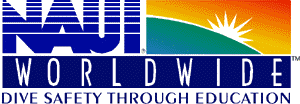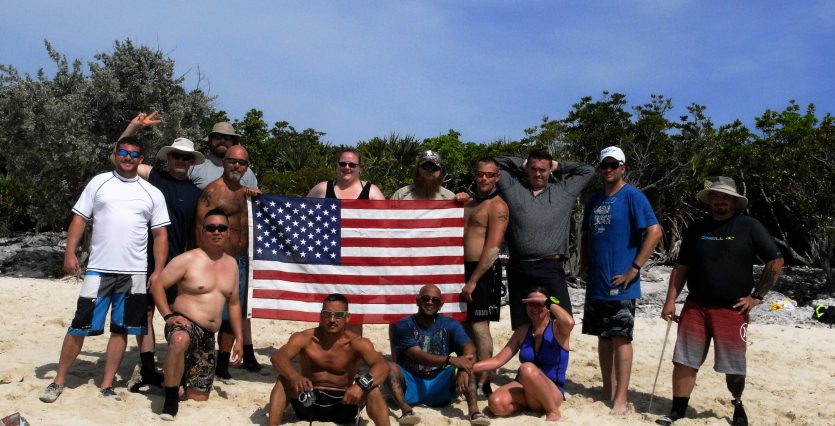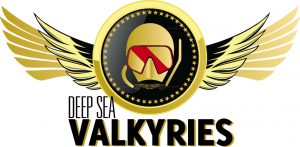 In 2008, while being treated for a severe back injury, I was told by my spinal surgeon that my days of sky diving, rock climbing, snowboarding and mountain biking were over. One bad fall or hard landing could have life-altering consequences. But he did recommend getting in the water. Much of my physical therapy was water-based, so I knew firsthand the healing power of the water. My doctor also encouraged me to look into scuba diving as my new adventure in life. After some begging and pleading with my better half, I was able to try an entry-level course during a vacation, and I was hooked. The scuba bug bit me hard and would not let go…
In 2008, while being treated for a severe back injury, I was told by my spinal surgeon that my days of sky diving, rock climbing, snowboarding and mountain biking were over. One bad fall or hard landing could have life-altering consequences. But he did recommend getting in the water. Much of my physical therapy was water-based, so I knew firsthand the healing power of the water. My doctor also encouraged me to look into scuba diving as my new adventure in life. After some begging and pleading with my better half, I was able to try an entry-level course during a vacation, and I was hooked. The scuba bug bit me hard and would not let go…
I’m sure I don’t need to convince this audience of the healing power of diving. For some, it is therapeutic and an escape from their mundane workweek. For others, it is the highlight of their year as they spend a week on a tropical island exploring new dive sites and building memories to tide them over till their next holiday. Many of us embrace this love and transition into leadership positions where we are blessed to have the opportunity to share these experiences and train new divers. Regardless of how much and how often you dive, we are all bonded through this love of the water and what it holds beneath the surface.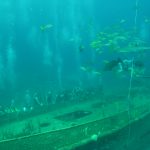
The Perfect Peace
For anyone with injuries, especially those related to combat and trauma (back injuries, amputations, shrapnel or severe scarring), slipping below the surface is more than exploring a new dive site. Reflect back on the most enjoyable dive that you can vividly recall. Remember that feeling of weightlessness and relaxation being suspended in the water column. Remember the silence and peacefulness between breaths where the daily noise we have grown to accept disappeared. Reflect on your breathing — controlled and deliberate, yet intuitive at the same time. Reflect on the excitement you felt and the emotions that were evoked seeing something for the first time. For any individual, but especially a veteran who has sustained trauma related to combat, all of this is more than therapeutic — it can be lifesaving.
Twenty a day is 20 Too Many
A Department of Veterans Affairs (VA) study that was released in August 2016 showed that veterans composed less than nine percent of the general U.S. population but constituted 18 percent of all suicides. After examining more than 55 million veteran records from all 50 states and territories, it was determined that an average of 20 veterans died by suicide each day, and in 2012, there were 15,000 suicide attempts, roughly one attempt every 35 minutes. After 16 years at war and with only half a percent of the population serving in the War in Afghanistan, the toll on the veteran goes beyond the physical injuries: it also extends to mental health and spiritual well-being. There are many reasons for these suicidal acts but one thing is definite, there needs to be a change — 20 veterans a day is 20 too many.
For the Mind, Body, and Soul
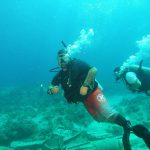
Deep Sea Valkyries was formed in response to these staggering numbers. Our mission is to reduce veteran suicides and suicide attempts by enhancing the quality of life for our veterans through the treatment of post-traumatic stress disorder (PTSD) while introducing them to healthy recreational marine-based activities. For each of our retreats, 20 veterans who are struggling with PTSD gather for a week-long voyage throughout the Exuma Cays in the Bahamas. Our participants conduct more than 20 hours of group
and individual counseling sessions, which focus on growth and healing, transitioning to civilian life, and the tools to continue in their recovery from combat-related injuries. We couple these sessions with daily spiritual devotions and a lot of scuba diving. This unique combination offers our veterans healing for the mind, body, and soul.
What is distinctive about these retreats is the holistic approach to healing that we employ. While the counseling sessions are the foundation of our program, diving is our cornerstone. Our groups range in their experience from brand new divers conducting open water certification dives to those working towards leadership level certifications. Utilizing a live-aboard, we can conduct up to 18 dives during our retreat, including night dives, drift dives, wrecks, blue holes, shark feedings, and countless reefs. Our all-veteran staff volunteers their services so that participants wanting to advance their certifications have the opportunity to earn specialty certifications such as Night Diver, Underwater Digital Imaging, Deep Diver and others. These men and women experience not only a meaningful counseling program but also have the opportunity to engage in a healthy recreational hobby as an alternative to chemical dependency. Our past participants continue to engage with our staff through our aftercare program, and all talk about how life-changing this experience was for them and about their newfound passion for diving. Many are transitioning into diving professional and leadership positions as we speak.
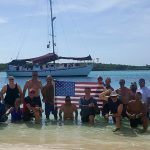
We are excited to partner with NAUI as advocates of the newly approved use of veterans’ benefits in the pursuit of professional certifications. In the coming issues of Sources, we will share stories of post-service successes in the dive industry, and we look forward to spreading awareness on how PTSD affects veterans and the power scuba diving has as an alternative form of therapy. Thank you to NAUI for this opportunity and support of Deep Sea Valkyries. To all the NAUI professionals who have donated confined water training to our participants, your support of our veterans is what separates and proves that NAUI is the “Definition of Diving.”
